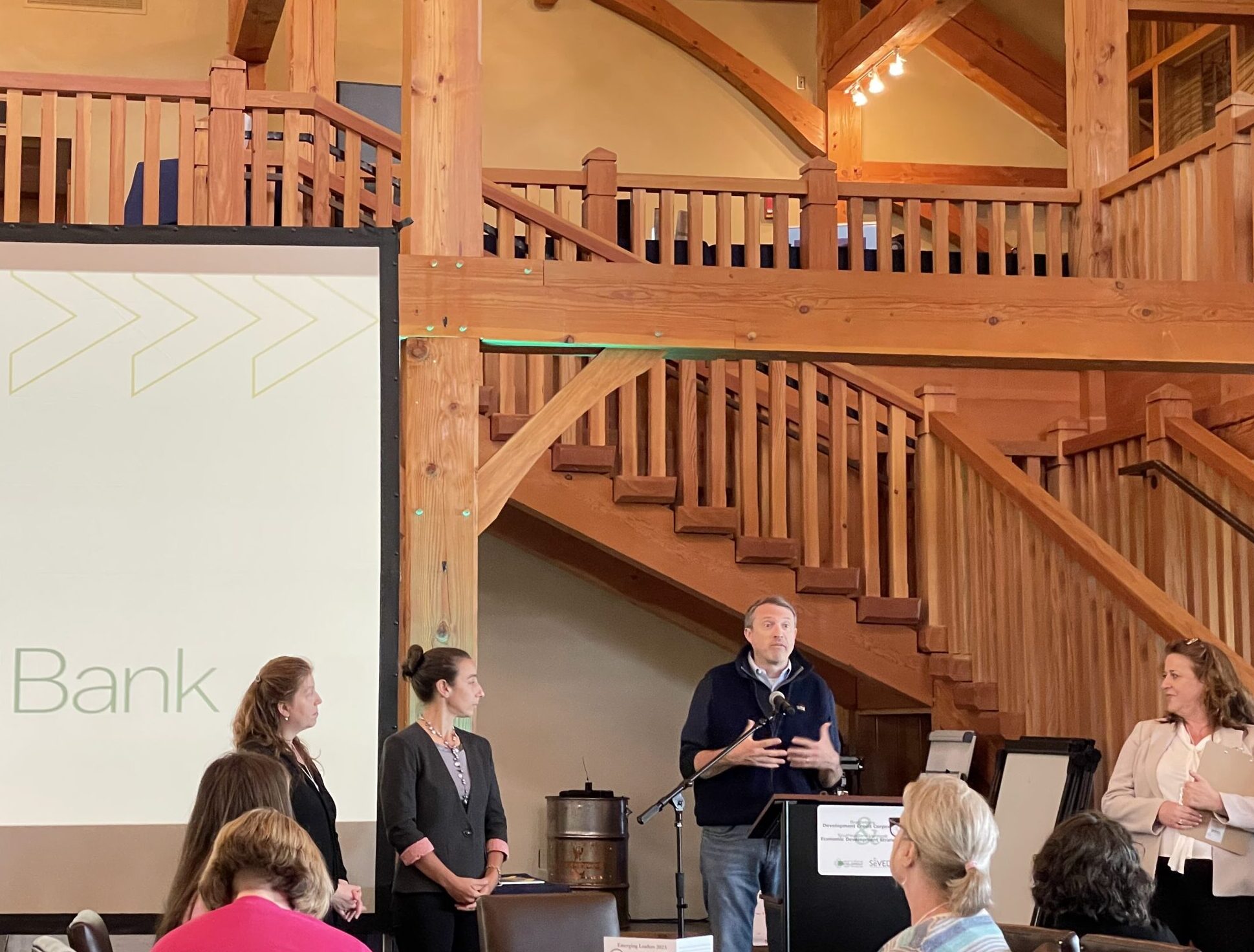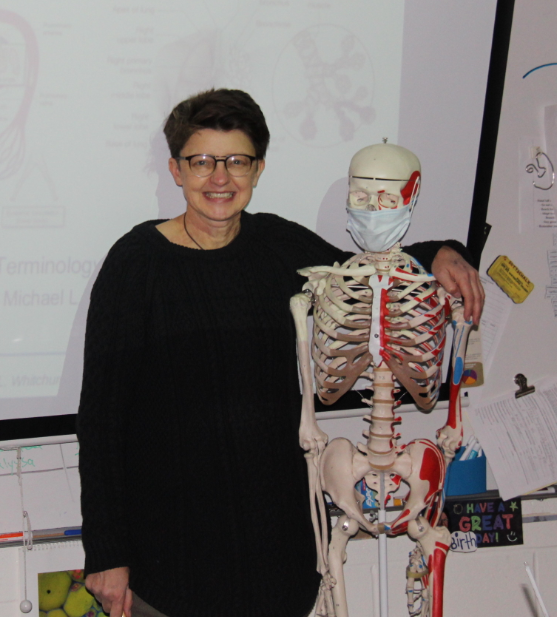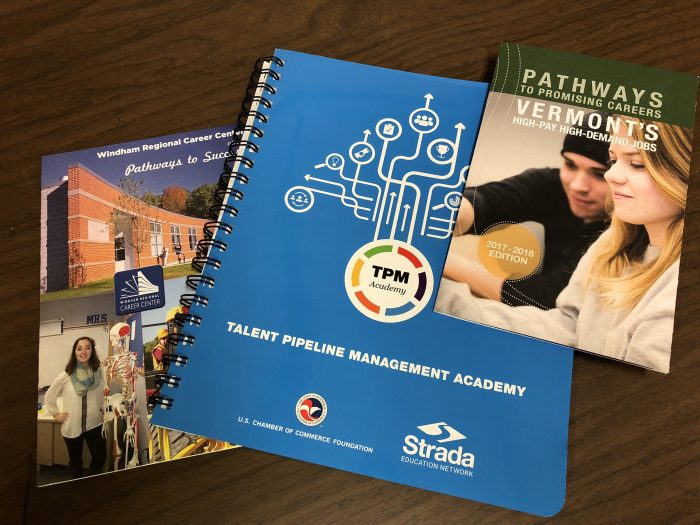
Talent Pipeline Management: Building Employment Opportunities in Southern Vermont
Building Employment Opportunities in Southern Vermont

National tools empower local workforce systems
As the regions workforce continues to age, and as our school populations decline, access to a highly skilled workforce has become one of the greatest economic sustainability obstacles our state and county faces. Statewide, reports have projected an annual workforce shortage of at least 10,000 people, and Windham County is no exception. The 2013 Comprehensive Economic Development Strategies (CEDS) developed by Southeastern Vermont Economic Development Strategies (SeVEDS) identified the need to reverse regional population decline, and to increase the size and quality of the workforce, among the top economic development priorities for the region over the next five years.
What has led to the narrowing of Windham County’s workforce demographics? While there isn’t one, specific contributing factor, we believe that one significant issue is that local educational pathways may not always align with local economic opportunity. In short, we have great schools and well-paying jobs, but local students may not be learning the relevant skills, behaviors, and education to succeed in those jobs. As our public education system continues to excel at delivering high school diplomas, post-secondary attainment remains low statewide, and those without any further education are less prepared, and less productive, in the 21st century workforce. Additionally, as the cost of in-state higher education continues to outpace growth in regional wage parity, the pursuit of higher education often forces young Vermonters to seek work out of state in higher wage economies; when certain low-wage jobs can’t provide the income to service student loan debt, students are forced to look elsewhere. For the BDCC, it’s about changing the conversation and empowering the education system to focus on the high-wage, high-growth industries right here in Windham County that pay more, require less expensive forms of education, and provide exciting and stable careers.
For over a year, Windham County and the State of Vermont has been benefiting from and contributing to a national conversation around workforce development. Five Vermonters, including Alex Beck from the Brattleboro Development Credit Corporation, have been traveling to Washington D.C to attend trainings sponsored by the U.S Chamber of Commerce Foundation called Talent Pipeline Management. The final installation of the training occurred last week.
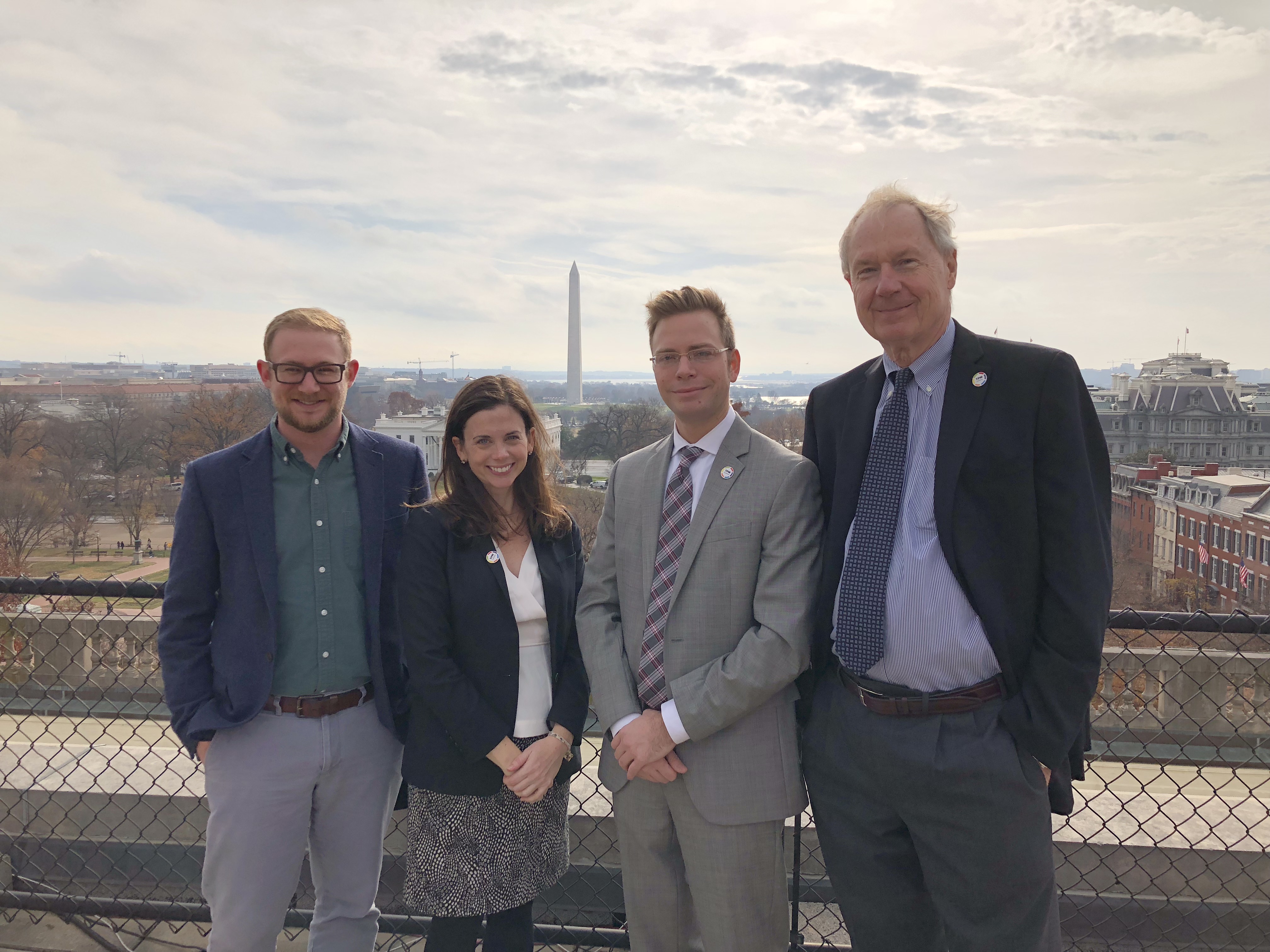
“The U.S. Chamber of Commerce Foundation’s (USCCF’s) Talent Pipeline Management (TPM) initiative is an employer-led movement to close the skills gap by applying supply chain management principles to education and workforce partnerships. Our TPM Academy acts as a playbook for businesses to implement TPM solutions into their communities. The Vermont team has been an invaluable partner. Their efforts in the construction industries and plans for the healthcare and food systems industries, as well as their partnerships with education providers in the region, have helped strategically connect more Vermonters to in-demand jobs.” says Jaimie Francis, Director of Education and Workforce at the U.S Chamber Foundation. “We were pleased to welcome Alex Beck of the Brattleboro Development Credit Corporation as a peer advisor in summer 2017 once he completed the Academy as a participant. Alex and our cadre of peer advisors share their firsthand experiences with TPM implementation which has proven invaluable to those new to the process.”
By understanding exactly what skills and education are required to succeed in the Windham County Workforce, secondary and postsecondary education systems can best prepare students for local, high paying jobs. Given the workforce and population shortage in Windham County and throughout Vermont, this initiative has become the flagship workforce program for the state Department of Economic Development, and the Brattleboro Development Credit Corporation is helping lead the effort with other workforce partners across the State.
Most recently, data collected from construction industry leaders using the TPM process was shared with local career and technical education centers to support their construction and building trades courses; at least 320 job vacancies were projected in the construction industry over the next two years. On a local level, the BDCC is sharing this data with the Windham Regional Career Center, and new coursework is being created that integrates curricula from the National Center for Construction Education & Research, a leader in developing industry recognized credentials for careers in construction.This will build on the successes of WRCC’s existing programs, creating a deeper shared understanding between employers and educators about the opportunities and pathways to success for students. Future statewide and local TPM projects include Healthcare and both durable and non-durable goods manufacturing; whether it’s superb mental health services or yogurt and airplane parts, the BDCC is dedicated to supporting the industries that drive the Windham County economy.
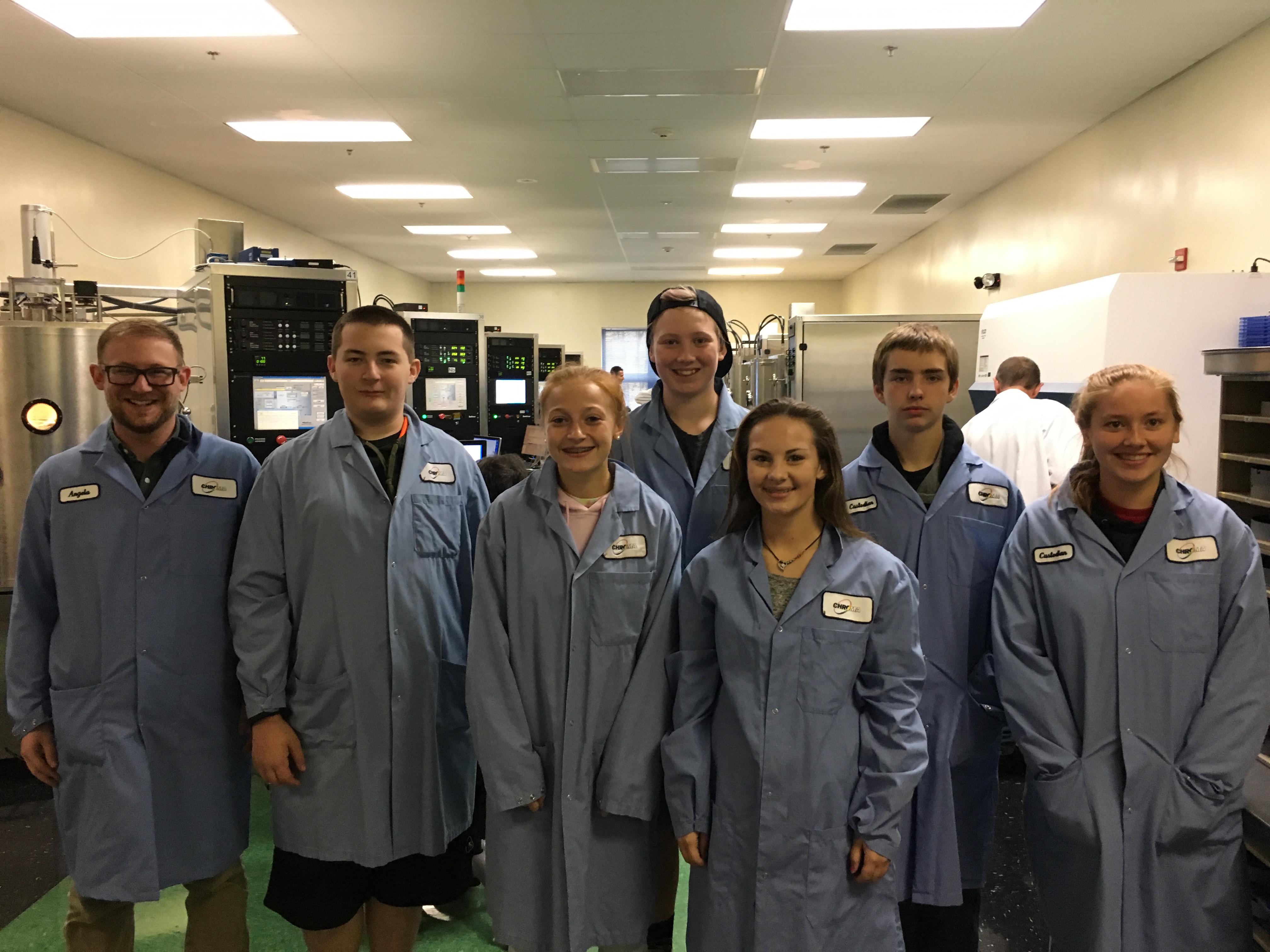
The Talent Pipeline Management process and data also supports new and existing BDCC activities, not just the curricula in the public education system. Knowing where current employees were educated and recruited from is valuable to other BDCC Initiatives and programs such as the Fast Tracks to Success program and Targeted Expertise Recruitment initiative. By highlighting the career pathways and employability skills needed to succeed, ranging from OSHA certifications to punctuality and reliability, TPM provides the Fast Tracks program with content to bring directly to the classrooms, and identifies the industries students should be made more aware of.
Bolstering our education system and better aligning career pathways to the local economy is only part of the solution to the population and workforce challenge our communities face, however. Even if every high school and college student decided to stay in the County to pursue a career after graduation, there would still be a workforce gap, especially for jobs that require highly specialized skill sets or years of experience at the management level. By having employers better identify what an ideal candidate is for their vacancies, recruitment efforts are made easier as well. These employee profiles will be leveraged by the Targeted Expertise Recruitment initiative to better target the individuals most likely to succeed in Windham County.
In the face of drastic workforce and population shortages, using Talent Pipeline Management helps ensure that every Vermonter is as productive and successful in the economy as possible, and that no good job goes unfilled due to lack of a skilled Vermonter. As these systems and programs fall into place, the necessity for external recruitment can focus solely on the jobs that are hardest to fill.
This data and toolset, and the programs and initiatives they support, serves as the glue that ties all of the BDCC’s programs together under the banner of the Southern Vermont Workforce Center of Excellence; through understanding where economic opportunity exists today, we can ensure these opportunities and the success they bring are realized by generations of Vermonters to come.
About
The Southern Vermont Workforce Center of Excellence is an employer-driven system of Workforce and Education partners aligned behind grassroots workforce development strategies that will increase the size and quality of the workforce, resulting in higher median household incomes. It was created through the CEDS process, which engaged residents, employers, and municipalities throughout the Windham Region. The vision of the Center of Excellence is that every Vermonter in Windham County has access to the education, training, and support needed to access meaningful, livable wage careers, so that no good job goes unfilled.

